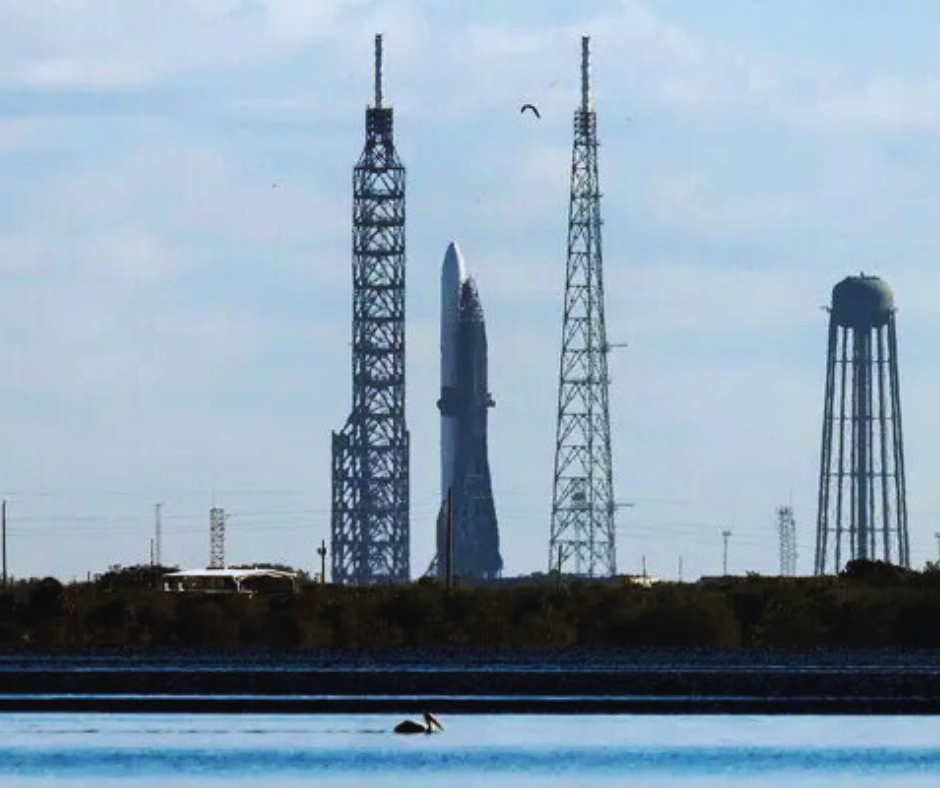CAPE CANAVERAL – In a highly anticipated attempt to debut its New Glenn rocket and compete with SpaceX in the lucrative satellite launch market, Jeff Bezos’s Blue Origin was forced to call off the mission due to technical anomalies detected during the countdown.
The New Glenn rocket, towering an impressive 30 stories high, had been primed for lift-off from Blue Origin’s launchpad at Cape Canaveral Space Force Station. Initially scheduled for 1 a.m., the launch faced multiple delays as mission controllers worked to resolve last-minute issues. Despite extending the countdown toward the end of its launch window at 4 a.m., the company ultimately stood down, citing concerns over a vehicle subsystem.
“We’re standing down on today’s launch attempt to troubleshoot a vehicle subsystem issue that will take us beyond our launch window,” Blue Origin said in a statement. “We’re reviewing opportunities for our next launch attempt.”
The setback is expected to delay the mission by at least 24 hours, though a longer postponement is possible as teams investigate the anomaly.
A Decade in the Making
The New Glenn launch marks the culmination of over a decade of development and billions of dollars invested. The partially reusable rocket is designed to land its first stage booster on an ocean barge just 10 minutes after lift-off—a high-stakes maneuver that would demonstrate Blue Origin’s ability to reuse hardware, similar to Elon Musk’s SpaceX.
“The thing we’re most nervous about is the booster landing,” Bezos shared in a pre-launch interview with Reuters. “Clearly, on a first flight, you could have an anomaly at any mission phase, so anything could happen.”
The rocket’s second stage was set to continue toward orbit, carrying a prototype of Blue Origin’s Blue Ring spacecraft. This maneuverable vehicle is intended for satellite servicing and national security missions, with future sales aimed at both commercial and Pentagon customers. Achieving orbit on a maiden flight would be an exceptional feat in the space industry.
“If we could do that, that would be a great success,” Bezos remarked. “Landing the booster would be icing on the cake.”
Catching Up with SpaceX
Blue Origin has faced significant delays in New Glenn’s development, spanning three company CEOs, as SpaceX surged ahead with its Falcon 9—the world’s most active and reliable reusable rocket. Recognizing the urgency, Bezos took steps in late 2023 to accelerate progress. He prioritized the completion of New Glenn and its BE-4 engines, appointing Amazon veteran Dave Limp as CEO to instill a culture of urgency and competitiveness.
Despite the delays, New Glenn boasts more than twice the power of SpaceX’s Falcon 9 and has already secured billions of dollars in launch contracts. The rocket’s eventual success could signal a turning point for Blue Origin, positioning it as a formidable rival in the space industry.
For now, however, the countdown to New Glenn’s inaugural flight remains paused, with Blue Origin engineers working tirelessly to resolve the latest challenges.







